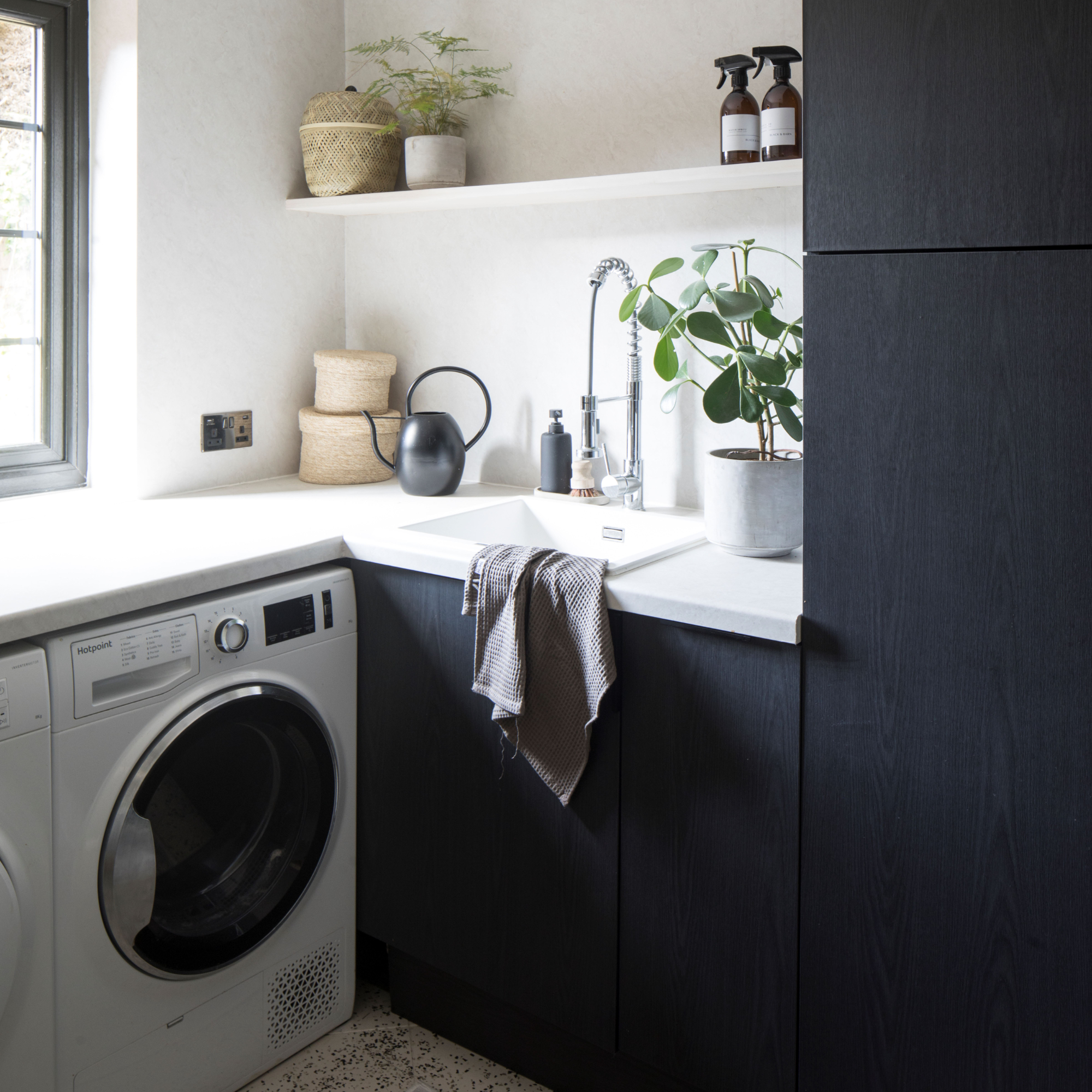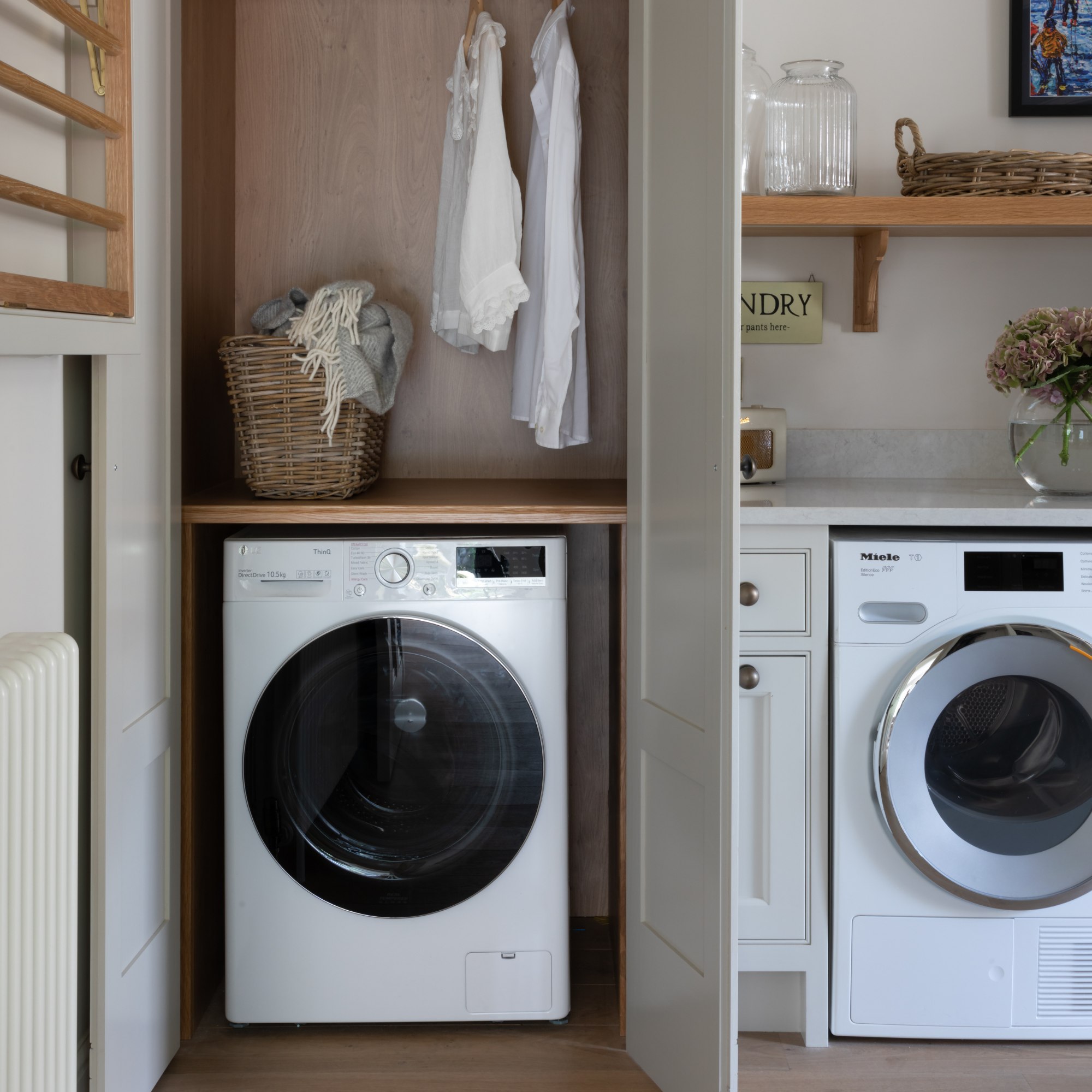
When it comes to saving money on your energy bills, it’s fair to say we’re all trying to save the pennies where we can. But if you're only looking at your heating to save money on, you could be missing a trick as there are ways you can lower your bill by using your washing machine at certain times of the day
How much it costs to run a washing machine might surprise you. As a high-energy appliance, your washing machine uses lots of electricity to heat water up and run a spin cycle. But it turns out that running your machine at certain times of the day can cost less compared to ‘peak times’ - but it all depends on your energy tariff.

How does it work?
Certain energy tariffs, called economy tariffs, offer cheaper rates for energy used during off-peak hours, and higher rates during peak hours. The most common forms of these tariffs that help save on energy bills are Economy 7 and Economy 10 tariffs.
‘Running your washing machine at the right time can help you save on energy costs, especially if you’re on a tariff like Economy 7 or Economy 10,’ says David Miloshev, electrician and HVAC/heating expert at Fantastic Services.
‘Economy 7 is a time-of-use electricity tariff that provides cheaper electricity for seven hours during off-peak times, usually overnight - the specific hours vary depending on your supplier and location, but they typically fall between 11pm and 6am in the winter and midnight to 7 AM in the summer.
‘Economy 10 offers 10 hours of cheaper electricity, divided between three periods throughout the day—typically late at night, in the afternoon, and a short period in the evening. The exact times depend on your energy supplier.’
When it comes to running machines, it is recommended you run your washing machine during these off peak times when the electricity is cheaper.

Is it worth it?
According to Money Expert, only using your machine during off peak hours can save you up to £22 on your energy bill. But it's not a suitable option for many homes.
‘Remember that Economy 10 tariff is not usually suitable for homes with gas, oil, or electric storage heating as it's designed to work with electrically heated wet radiator systems or ceramic core heaters,’ says Les Roberts, Business Energy Expert at Bionic.
What’s more, an Economy 7 tariff typically would require you to use your machine at night, an option that doesn’t work for everyone.
‘Economy 7 is worth it if you can shift a substantial portion of your energy usage to off-peak times. It can save you money, but it’s not ideal if most of your energy usage is during the day,’ says David.
‘Economy 10 is more flexible, providing cheaper electricity during multiple times of the day, making it more suitable for people who can’t restrict their usage to just overnight periods. However, it is less widely available.'

What else can I do?
Even if you’re not on an economy tariff, David says it is still worth using your machine at off-peak time.
‘Standard tariffs charge a flat rate for electricity usage regardless of the time of day - this means that there are no off-peak savings,’ he says.
‘While there is no specific cost-saving time on a standard tariff, avoiding running appliances during the day when national demand is highest (typically mid-afternoon to early evening) can still have environmental benefits as it reduces strain on the grid.’
If you have a standard tariff, keeping your washing machine running efficiently will help save money on bills.
Ian Palmer-Smith, appliance expert at Domestic & General recommends the following:
‘Clean the Filter Regularly - A clogged filter forces your machine to work harder, wasting energy and potentially shortening its lifespan. Cleaning it regularly improves efficiency and durability,’ he says.
‘Your washing machine may default to warm water for rinsing, which uses extra energy. Switching to cold rinses still gives fresh, clean results and cuts down on energy consumption.'
These little changes make all the difference to your energy bills.







